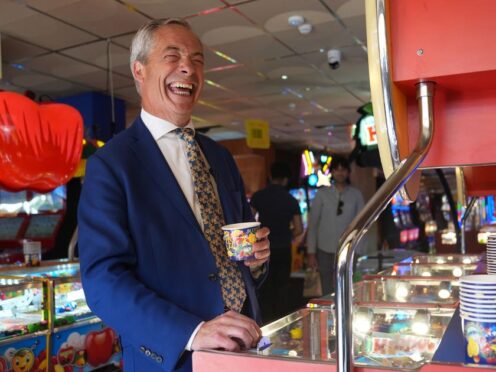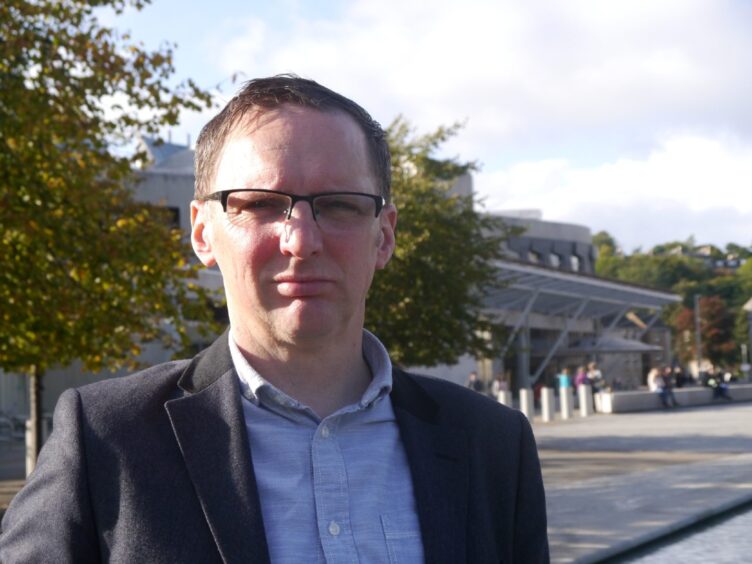
The rise of Nigel Farage’s Reform Party could spell disaster for the Scottish Tories, according to party insiders and a leading pollster.
Mark Diffley says the SNP and Conservatives are locked in a race to the bottom, with a number of key battlegrounds set to be decided by which of the constitutional rivals can lose the fewest votes.
But it is the return of Nigel Farage to frontline politics – coupled with a lack of Alba candidates – that could see the Tories crashing out of seats in their former North East stronghold.
In a series of interviews with The Sunday Post over recent weeks, party figures warned of a perfect storm if Reform consistently polls above 4% in Scotland and Alba decides not to stand in key areas.
Alex Salmond announced last month that his pro-independence party will put up 19 candidates.
However, none of those will be in Gordon and Buchan, West Aberdeenshire and Kincardine or Aberdeenshire North and Moray East – the three main target seats for the Tories in the North East.
Reform is standing in every Scottish constituency and is currently polling above 4%, with a recent snapshot recording their support at 7%.
A reckoning for party bosses
One Tory insider said he was once “quietly confident” the party would return three MPs in the North East but now fears they face a complete wipeout in the region.
He warned that would result in a “reckoning” for party bosses in Scotland after a calamitous election campaign.
Meanwhile, Diffley – founder and director of the Diffley Partnership – warned the impact of Reform in Scotland could be “significant”.
The party is polling as high as 11% in some individual constituencies and is doing particularly well in areas where the Tories have traditionally been strong.
While Diffley said Reform will not win a single seat in Scotland, he believes they will leave their mark by stripping away support from the Tories and losing them seats.
He said: “The rise of reform and Farage standing will have a huge impact for the Tories down south.
“The impact here probably won’t be as big but unfortunately for the Tories in Scotland, there are a bunch of marginal seats in the North East.
“Their early confidence was borne out of the belief that they were losing votes and the SNP were losing votes but they hoped they would lose them at a slower rate.
“I don’t think that’s quite so certain now, largely because of the appearance of Reform.”
Small change could have big impact
Tory support in Scotland has dropped from 17% to around 14 or 15% after what Diffley says may be one of the worst election campaigns in history.
He said: “It’s not falling off a cliff but that kind of drop of 3-4%, when you think that vote is very heavily concentrated in two areas, the Borders and the North East, that’s actually quite a lot.”
A new Redfield and Wilton poll has put Reform ahead of the Tories for the second time in a week.
Meanwhile, the Techne UK weekly tracker poll saw Farage’s party move to within two points of the Conservatives.
Both polling outcomes would consign the Conservatives to less than 50 seats and give the Lib Dems a chance of being the official opposition even though they are only polling at 11-12%.
But because of the UK’s first past the post voting system, that would still only mean a predicted return of around five Reform seats.
Labour would have a majority of 366, with the Lib Dems on 56 seats and the Tories on 35.
Diffley said: “Reform are just eating the Tory vote in those places with no real chance of winning a huge number of seats.
“That’s why the polls are showing such wild numbers.
“It means that even a small rise in Labour votes will bring them through to win probably lots of seats they would never have dreamed of even a month or two ago.
“The Tories are losing support particularly in areas where they are strong and that is really important.
“A lot of ex-Tory voters want them to get a kicking here.
“Reform voters, particularly those that have abandoned the Tories, simply don’t care how bad it is for them.”

Enjoy the convenience of having The Sunday Post delivered as a digital ePaper straight to your smartphone, tablet or computer.
Subscribe for only £5.49 a month and enjoy all the benefits of the printed paper as a digital replica.
Subscribe
